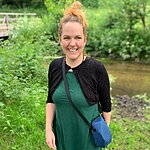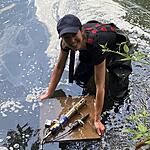You need to be registered to request to join groups.
Sign Up
Lea Guardians
Leaderboard

4940 Points

4800 Points

4640 Points

4520 Points

3700 Points
About
The Lea Guardians are a collection of community groups based throughout the Lower River Lea Catchment (A.K.A. the London Lea Catchment) in East London, which spans from Hoddesdon to the confluence of the Lea with the River Thames. These fantastic groups work to improve river and community health through activities like litter picks, habitat creation and management, river restoration, and ecological and water quality monitoring in specific areas on the main River Lea, the Lee Navigation (canal) and the tributaries to the main river and canal, which includes the Moselle Brook, Pymmes Brook, Salmon's Brook, Turkey Brook and Ching Brook.
The Lea Guardians have regular meetings as a collective, and representatives from the Lea Guardians also regularly attend wider London Lea Catchment Partnership meetings, which involve stakeholders from the EA, Thames Water, local councils, and environmental NGOs like Thames21 and ZSL.
For more information about the catchment and the catchment partnership, please follow the below links:
https://storymaps.arcgis.com/collections/ed2ac601d4a648718b8959e72d85325a
https://environment.data.gov.uk/catchment-planning/OperationalCatchment/3275
Water testing protocol
Sewage pollution, road runoff and agricultural pollution are the main factors negatively impacting the water quality in the catchment. Three 'WaterBlitzes' were carried out from 2022-2023 to provide a snapshot of the impact of sewage pollution on the catchment's water quality around the catchment. More information and the results can be found here: https://storymaps.arcgis.com/collections/7f99c7078eaf46a0866a4e2a57bb82a6.
As a result of these WaterBlitzes, we could see where the sewage pollution hotspots and sites with good water quality were located. This has allowed us to set up monitoring sites at some of these locations to gather more regular water quality data in order to investigate the magnitude and source of the pollution and to gather baseline data.
Dissolved phosphate and ammonia are indicators of sewage pollution, so the dedicated citizen scientists of the Lea Guardians are monitoring these sites using:
Hanna checkers for phosphates (low-range) from 0.0 to 2.5 mg/L
Hanna checkers for ammonia (low-range) from 0 to 3 mg/L and ammonia (medium range) from 0.00 to 9.99 mg/L
Some of these monitoring sites are also being monitored by citizen scientists using the urban riverfly monitoring initiative (RMI) methodology and devices that measure physical parameters like temperature, pH and turbidity.

